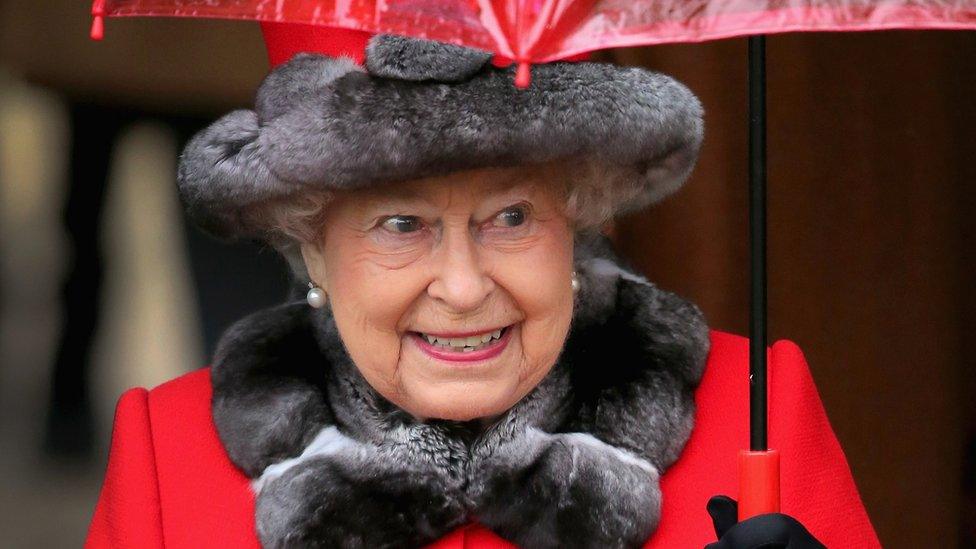The Queen's birthday: How she became patron of 600 organisations
- Published
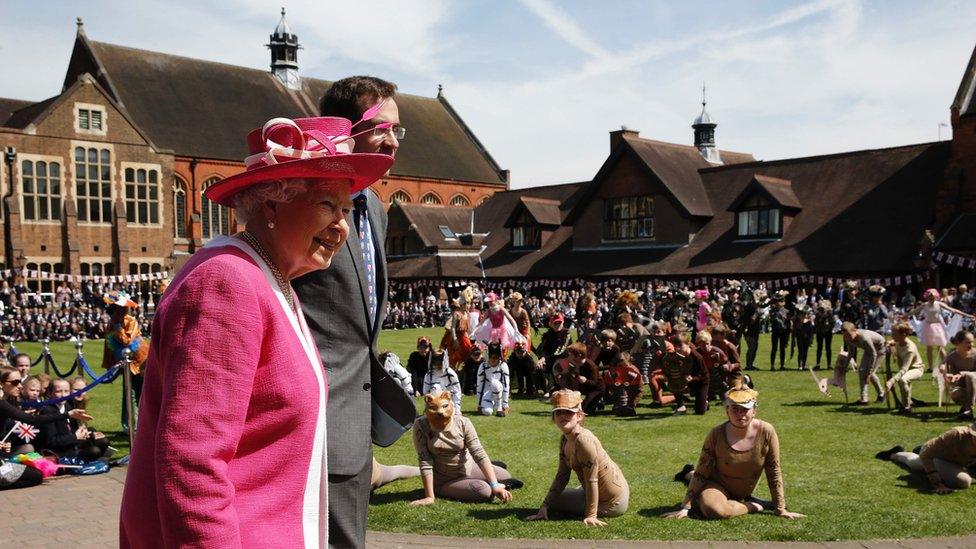
Many educational organisations - like Berkhamsted School - have the Queen as patron
This weekend, the Queen's role as patron for hundreds of charities and organisations is being celebrated with the Patron's Lunch, the finale of her official 90th birthday celebrations.
What does it mean to be patron, what are the bodies for which she has an honorary role and what does she do for them?
There are currently more than 600 bodies that can boast of having the Queen as their royal patron - and she has been patron of 433 of those since 1952, the year of her accession to the throne, having inherited the patronage from her father.
The idea of such patronages has been around since at least the 18th Century, with the first recorded being King George II's involvement with the Society of Antiquaries, which still exists and now has the Duke of Gloucester as patron.
'Public value'
The list of names shows the diverse interests the Queen represents, and includes schools, universities, professional institutions, hospitals, social clubs, environmental bodies, sports associations, armed services, arts organisations, agricultural societies and children's charities.
Most are UK based and many take the prefix "royal" to mark their association with the monarch - the Royal British Legion, the Royal Horticultural Society and the Royal Shakespeare Company, for example.
Then there are other charities, like Cancer Research UK, as well as bodies long associated with the Queen like Girlguiding and the Scout Association.
The monarch's personal interests are also reflected, with the inclusion of horseracing bodies The Jockey Club and the National Horseracing Museum.
The Sandringham Women's Institute, which meets on the Queen's Sandringham Estate and boasts her as a member, also has a royal patronage.
Sarah Dell is one of the 10,000 charity workers invited to the Queen's birthday celebration picnic in London on Sunday
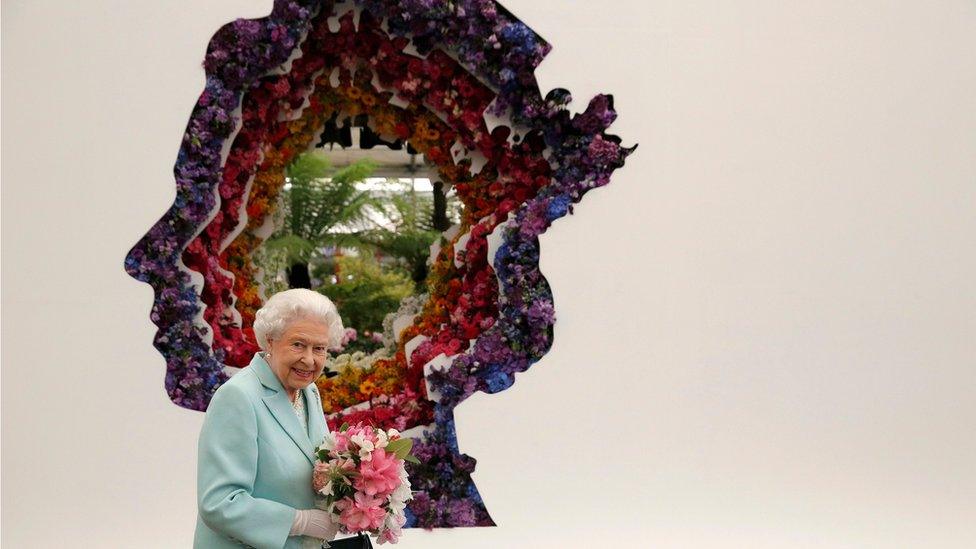
One of the Queen's most recent engagements was at the Chelsea Flower Show, organised by the Royal Horticultural Society, of which she is patron
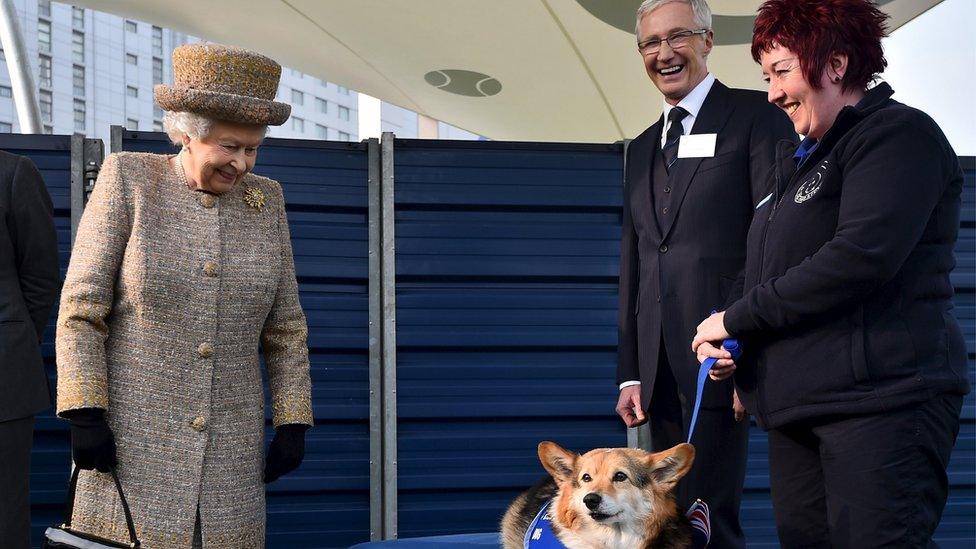
She was introduced to a corgi on a visit to Battersea Dogs and Cats Home in March 2015, having been patron of the charity for nearly 60 years
But then there are perhaps less well-known organisations which have the Queen as patron.
They include the Piobaireachd Society (which encourages the study and playing of the classical music of the bagpipe), the Highland Cattle Society, the Linnean Society of London (which promotes the study of natural history), the Royal Tennis Court at Hampton Court Palace and the National Brass Band Championships of Great Britain.
The Queen has also inherited patronages from the Queen Mother and Princess Margaret.
And in some cases, the line of royal patronage dates back to the 19th century - Queen Victoria originally became patron of the Mothers' Union in 1898.
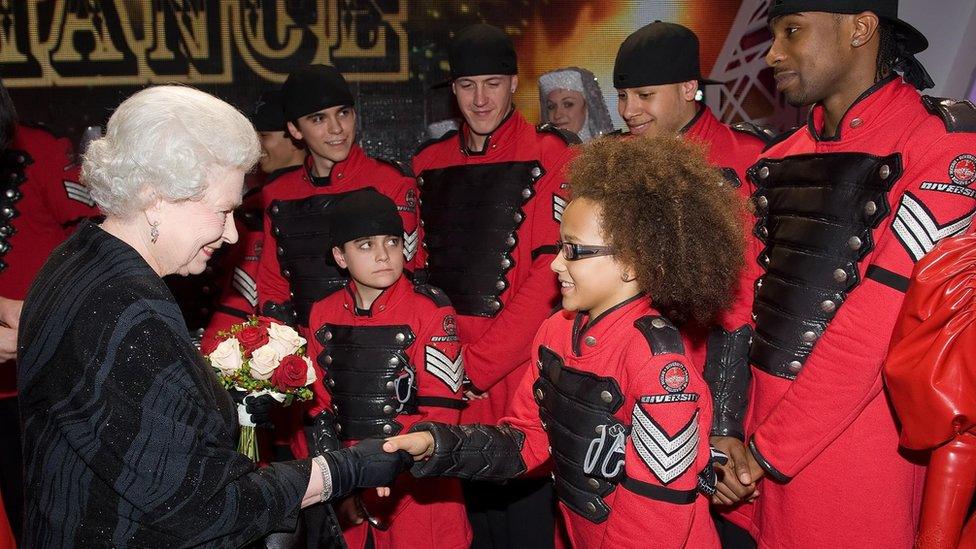
The Royal Variety Charity holds the Royal Variety Performance each year - the Queen is seen here meeting dance group Diversity after their 2009 show
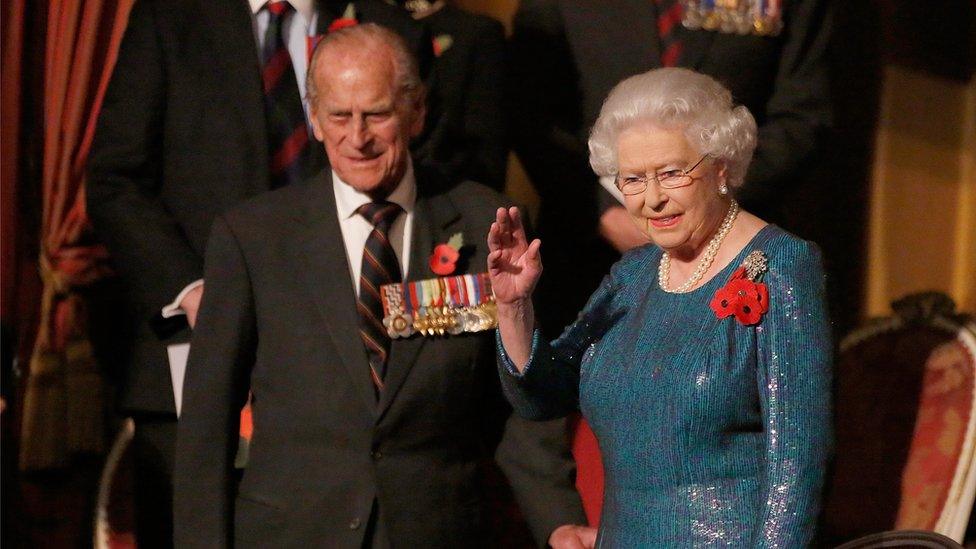
Another annual event is the Festival of Remembrance organised by the Royal British Legion at the Royal Albert Hall
So how are they chosen?
Buckingham Palace said patronages "generally reflect the interests of the member of the Royal Family involved", adding that "occasionally, a member of the Royal Family will hear about a cause whilst on a visit, or via one of their other charities, and will decide to support it".
Bodies can apply for the Queen to be patron, with her private secretary passing on any requests they think may be of interest, and research is usually then carried out before a decision is made.

What is the Patron's Lunch?
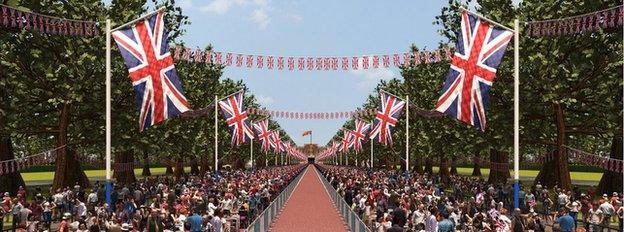
An artist's impression of the Patron's Lunch
A street party celebrating the Queen's patronage of organisations in the UK and around the Commonwealth is taking place on 12 June
There will be some 10,000 guests at the event on The Mall, with tickets having cost £150 each
The Queen and Duke of Edinburgh, along with other members of the Royal Family including the Duke and Duchess of Cambridge and Prince Harry, will attend
The event has been organised by Sports and Entertainment Ltd, of which the Queen's grandson Peter Phillips is a director
He said any surplus money would go into the newly-created Patron's Fund, to be used to support projects run by the Queen's charities
Charities were allowed to raise money with 40% of their ticket allocation
Some tickets were available to buy via a public ballot with others allocated to the charities and organisations which have the Queen as patron

As the Queen has so many patronages - the most of any member of the Royal Family - her involvement with them varies.
Buckingham Palace says many patronages have another member of the Royal Family as president, and they play a more active role in the organisation.
It is rare for brand new charities to get royal patrons. And perhaps understandably, now that she is 90, the Queen does not tend to take on new patronages at the moment.
Having the Queen as patron provides vital publicity for the organisation - with many of her engagements being linked to her patronages, and some events being hosted at a royal residence.
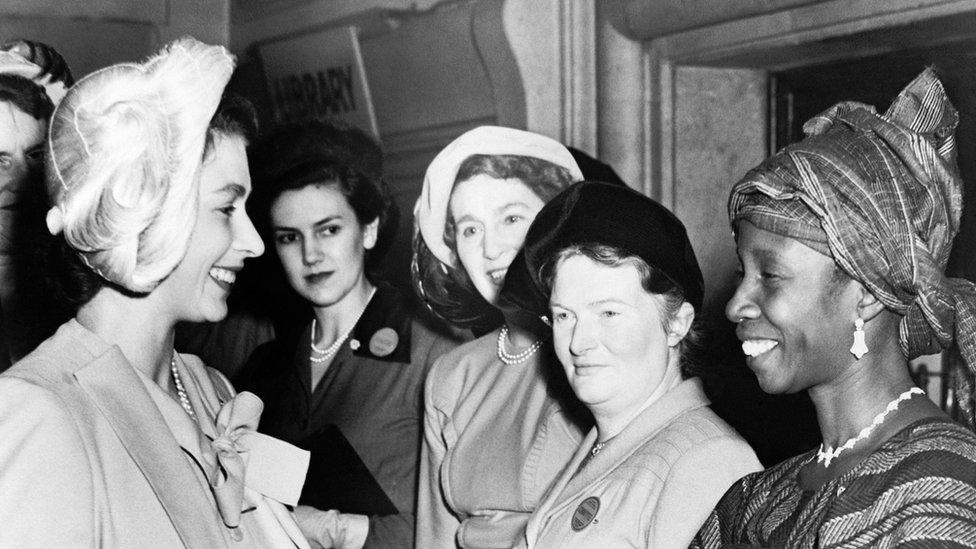
The Queen was linked to the Mothers' Union - which first had Queen Victoria as its royal patron - even before her accession to the throne. Here she is meeting members of the union at Central Hall, Westminster, in 1949 when she was Princess Elizabeth
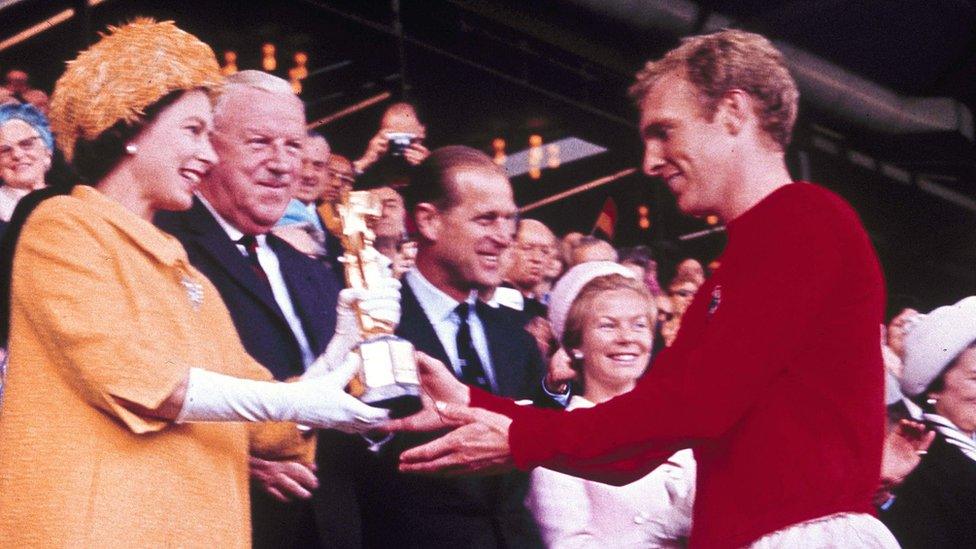
As patron of the FA, the Queen presented the World Cup to England captain Bobby Moore in 1966
The charities that are represented by the Queen say her patronage is of great importance to them, shining a light on the work they do.
Debbie Kerslake, chief executive of Cruse Bereavement Care, said it had been a "privilege" to have the Queen as patron for the past 32 years.
It meant a "great deal" to the staff and volunteers to have the work recognised in this way, she said, adding that letters sent from Buckingham Palace were "cherished" by the charity.
The Queen has attended events including their 25th anniversary celebration at the Royal Albert Hall and Golden Jubilee reception at St James's Palace.
The Scout Association, of which the Queen has been patron since 1952, describes her as "a much-loved figurehead" and says she inspires young people "to enjoy adventures, contribute in their community and reach their full potential".
It said she is "resolute in her support" for the movement and has attended World Scout Jamborees, launched a Scout lifeboat, visited its national centres and honoured Queen Scouts for their achievements. She has "never wavered in her kindness and generosity towards young people".
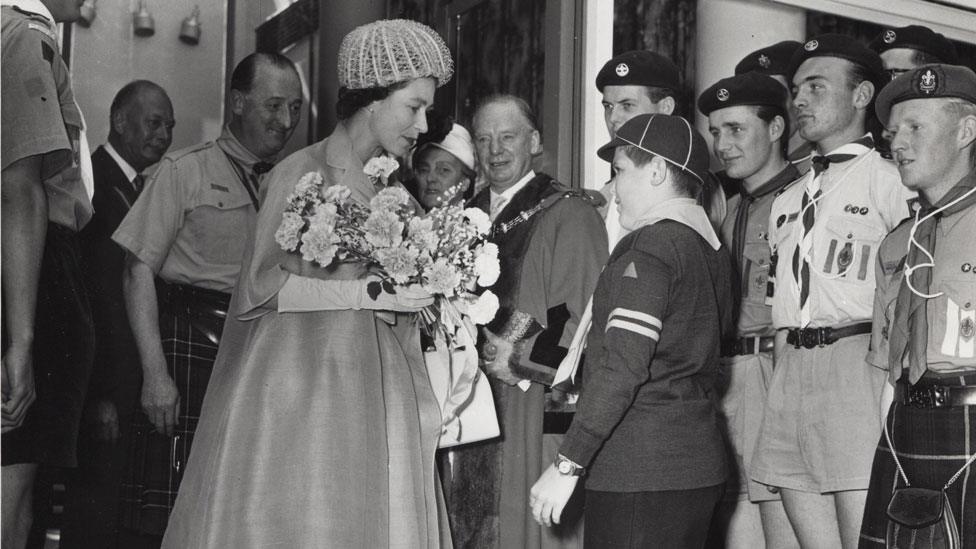
The Queen - here opening Baden-Powell House in 1961 - has been patron of the Scout Association since 1952
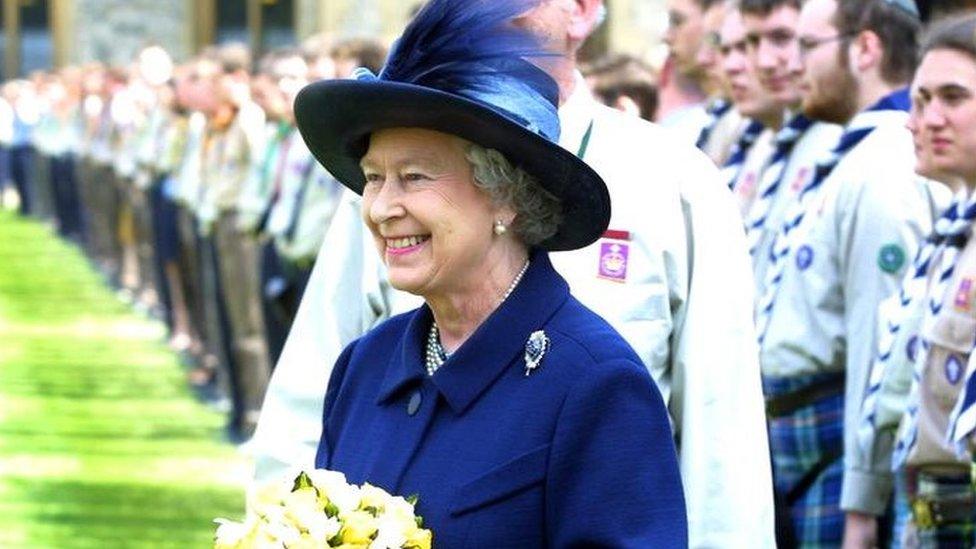
The Queen reviews Queen's Scouts at Windsor Castle in 2002, accompanied by Chief Scout George Purdy
John Low, chief executive of the Charities Aid Foundation, which provides help to charities and their donors (and has the Duke of Edinburgh as its patron), said royal patronage places "charities at the heart of national life".
"Her Majesty the Queen stands behind so many of the things that matter in the public life of this country, including the charities and voluntary organisations which help make Britain what it is."
There is no set length to a patronage - some are for life, while others will only last for the duration of a specific campaign.
But however long the patronages last, the diverse organisations that have this special link to the Queen can say they are part of a unique club - one that is meeting for the very first time this weekend.
And Buckingham Palace says there are other events celebrating "the public value of royal patronage" this year- include those marking the 60th anniversary of the Duke of Edinburgh Awards scheme and the 40th anniversary of the Prince's Trust.
- Published10 February 2016
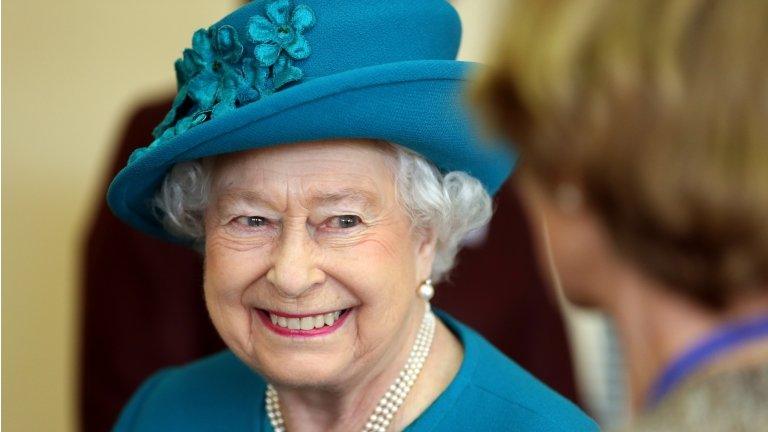
- Published15 January 2016
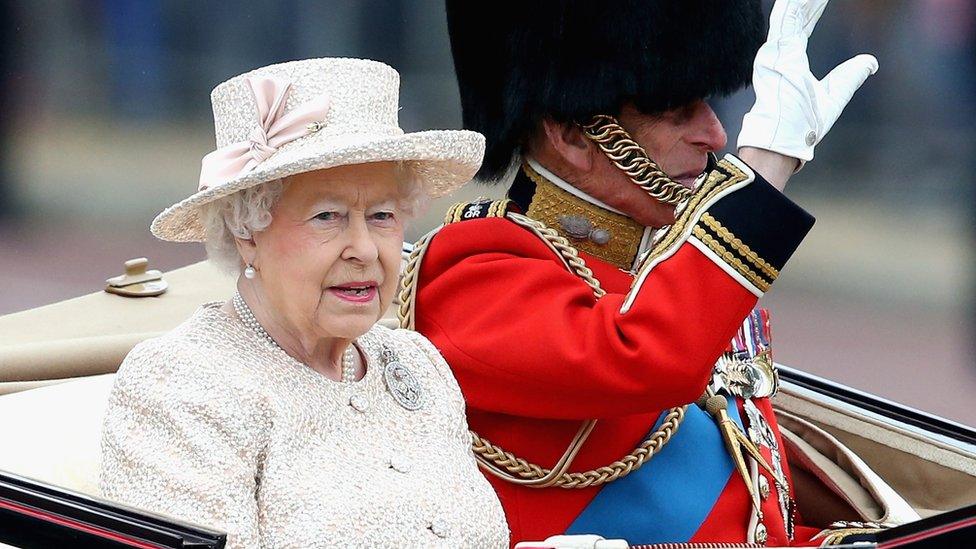
- Published9 July 2015
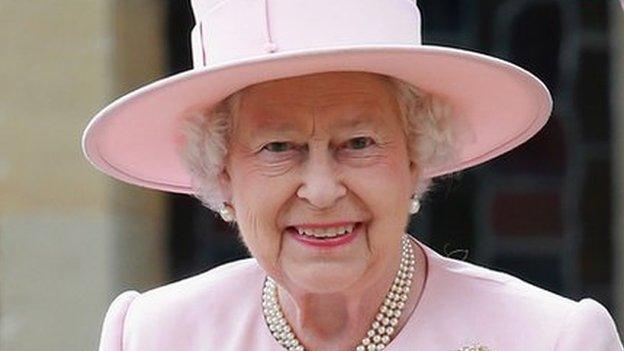
- Published1 January 2016
